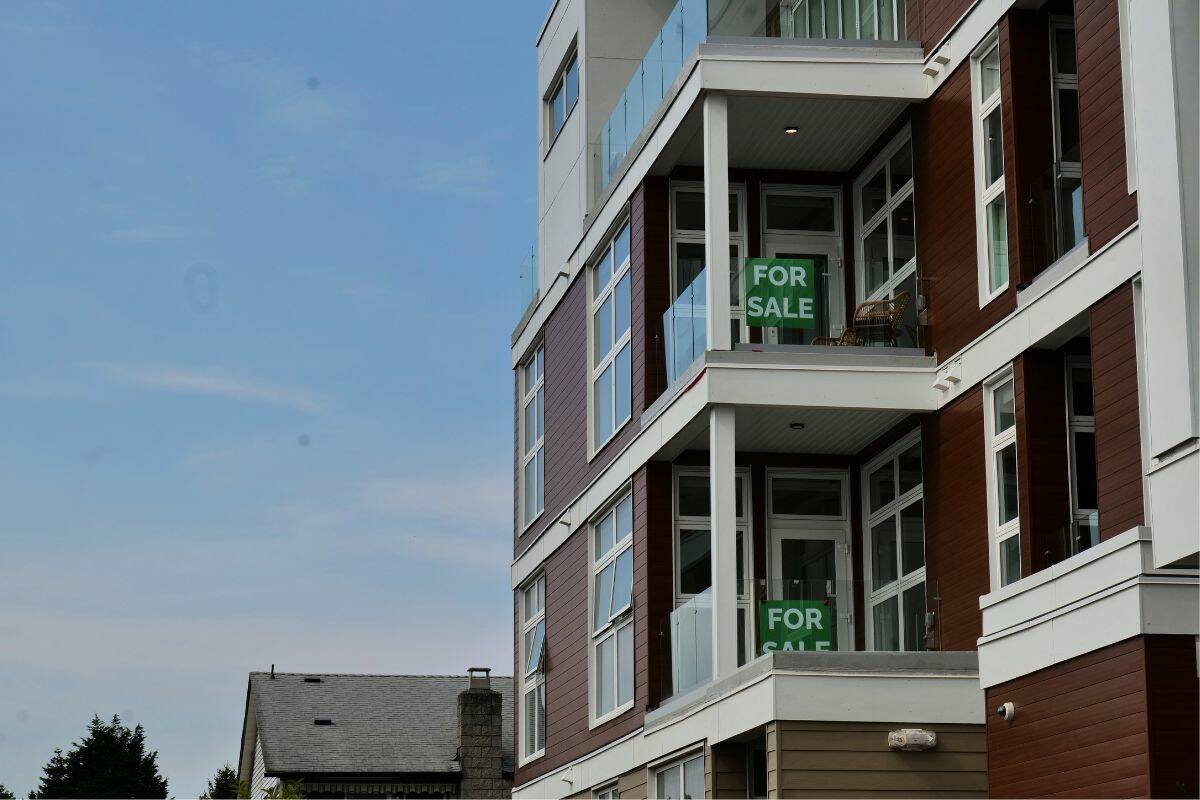
Victoria revises affordable housing incentive after low developer interest
Published 10:45 am Monday, November 10, 2025
Victoria is moving to make its new affordable rental tax break more appealing to developers, after staff found that the 60-year affordability requirement has deterred nearly all private projects from taking part.
The Affordable Rental Housing RTE Bylaw was adopted in June 2024 to expand the city’s support for non market rental housing and to encourage market developers to integrate some housing affordable to middle income households.
The RTE provides a 10-year property tax exemption after redevelopment. It applies to a non-market stream, operated by a non-profit housing provider, and a market stream, where 10 per cent of their units must be affordable units, below the current market average.
However, staff noted the city only received five applications since the program’s adoption. Only one of those was a market application that resulted in two affordable units. More successfully, four applications were approved through the non-market housing stream, adding 304 affordable units.
While staff said several other potential applicants for larger tower projects are considering the RTE, there were several reasons why uptake has been lower than hoped.
Though the tax incentive is “nearly equivalent” to the revenue that owners would forgo by participating – between $800,000 and $2.5 million over 60 years – the RTE adds administrative complexity in an already challenging environment for rental housing, staff said. The foregone revenue was cited as the “most significant barrier” by developers to their enrolment.
Additionally, banks and CMHC don’t count the tax exemption when calculating loans, making projects harder to finance. They focus on the foregone revenue that extends past the financial benefit arising in the first 10 years, Ross Soward, manager of housing said.
“It sounds to me like the pinch point is really with the banks and the financing agencies more than with the developers, which would align with the experience that I’ve had,” Coun. Jeremy Caradonna said.
Council adopted staff’s recommendation to reduce the affordability term from 60 to 20 years, and review the program again in one year.
“It’s really challenging to try to shoehorn some affordability into market and no one has really figured out how to crack that nut yet,” Caradonna said. “I’m totally happy to tweak this policy and give it more time.”
The city also agreed, on staff recommendation, to include non-profit housing co-ops as eligible in the non-market stream, possibly in tandem with new federal or provincial funding tools.
It was a suggestion that Mayor Marianne Alto found very promising.
“The inclusion of non-profit housing co-operatives opens an amazing door that we perhaps have not supported very vociferously in the past, and perhaps not acknowledged the role that cooperatives in particular, but certainly non-profit cooperatives, have in creating additional affordable housing,” she said.
Soward noted there has been renewed interest in co-ops at the federal sector.
He also noted that fundamentally, the business model of market housing providers and the systems that finance and deliver the capital required to build that housing is not aligned operationally or foundationally with the goal of delivering below market units.
“Although the RTE and the tax exemption is not insignificant and it’s meaningful from the perspective of the city’s levers, it’s not necessarily always going to be enough to really move the needle to overcome those more structural challenges,” he said.
Coun. Stephen Hammond emphasized that the city should stop trying to make for-profits build below-market units and focus on non-profits instead.
“When we talk about shoehorning, my mind went to Cinderella’s step sisters where they tried to shoehorn their way into Cinderella’s slipper. And no matter how you do it, those shoes weren’t going to fit. I just think we should be getting out of the business of asking the for-profit developers to get into non-profit below market business,” Hammond said.“Lets stop tweaking with this and put all our energies into where they’ve had success.”
Ultimately council agreed to support the changes to the RTE and to continue meetings with the CMHC, but with cautious expectations.
“We’re trying to do our part in terms of using the levers to encourage it, but it’s probably going to take some creativity and partnership from the development community,” Soward said. “It will continue to throw a bit of complication into their business model … that’s why we’ve tried to highlight and reinforce that the backbone of our affordable housing supply is that non profit, non market stream and I think we’re seeing the tool being successful in that.”






